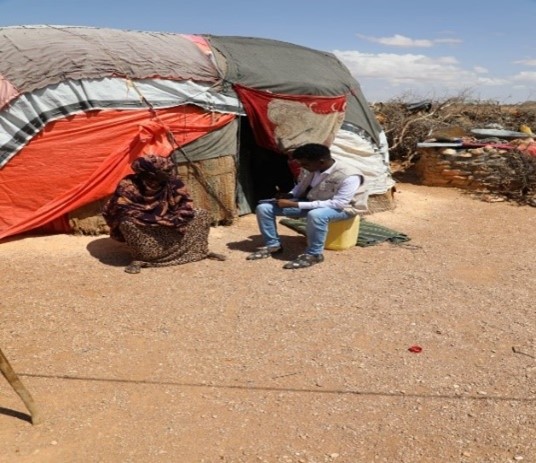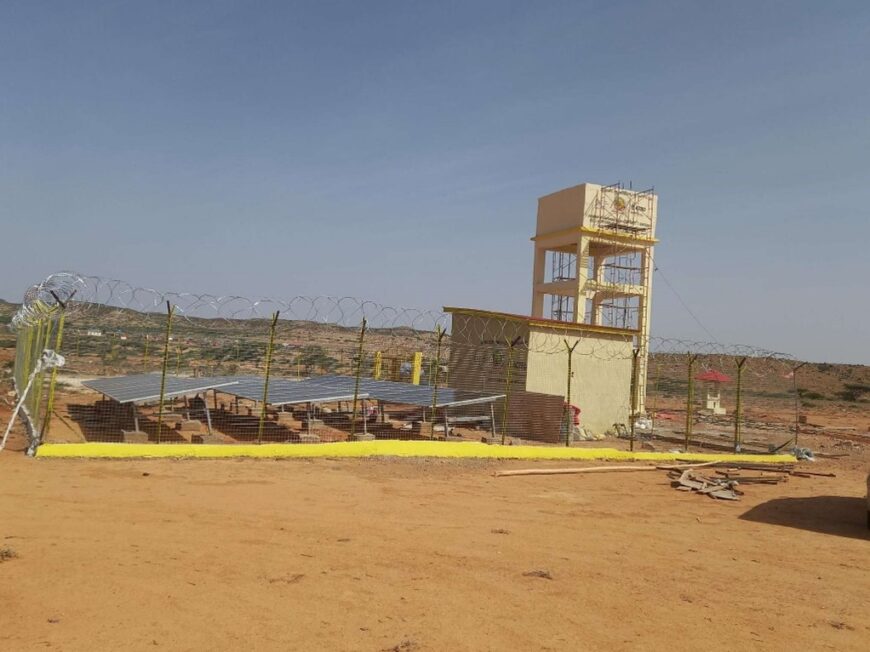Somalia: Saving lives in Samakaab Village by providing urgent WASH services
In Somalia, more than 4 million people are in need of urgent WASH services such as access to safe, sufficient, and affordable drinking water as reported by WASH cluster in February 2021. This phenomenon on top of poor hygiene practices and lack of sanitation facilities for human excreta imposes a threat to human survival and healthy living.
In 2021 Somalia faced a severe food security crisis with 1.6 million people in IPC 3, a 40% increase as compared to 2020.
The poor and erratic rainfall in late 2020 will therefore likely serve as one of the primary drivers of food insecurity across Sool, Sanaag and Togdheer in 2021.
Lack of rainfall leads to devastating droughts
In Sool region, the majority of households rely on pastoral activities for a living, keeping various types of livestock, particularly camels, goats, and sheep. However, four seasons of no rain have resulted in a devastating drought, with the consequences of livestock extinction and
ACTED team met Maryan Bare, a 50-year-old mother with seven (7) children. Maryan’s family is one of the thousands of households that were deeply affected by the droughts and a large number of their livestock were wiped out, the family migrated to Samakaab village in order to access more potential humanitarian services as part of their coping mechanism.
“Since the operational failure of the borehole, I have to walk a long distance every day for water collection and spend more time from the sunrise to sunset, just to get twenty (20L) litter of water that’s suitable for drinking, cooking, washing and bathing. Also, in case of an illness, we can hardly afford a barrel of water which usually cost $3 and forces us to skip meals” Mariam said.

ACTED rehabilitated the sole water source (borehole) in Samakaab with the support of the Somalia Humanitarian Fund. The teams completed the hybrid solar system with the replacement of two Solar panels, pipeline extension, and addition of two water kiosks for water distribution, and collection upscaling.

Construction of 40 safe Gender segregated latrines
ACTED constructed forty communal latrines and ensured there is absolute accessibility for latrines at the doorstep with highly regarded safety features such as solar lighting, lockable from the inside, and gender segregation to restore dignity. In addition, all latrines were installed with handwashing facilities and this had increased the adoption of good hygiene practices for personal, observance of hand hygiene, food hygiene, and water hygiene in order to avoid contamination.
ACTED team assured Maryan’s family and the rest of the village that safe, adequate, and affordable water was accessible. Maryan now has sufficient water for her family at a lower cost, in a more convenient location, and at all times, not only for household members but also for livestock.
Living standards and water usage capacity had improved, as per personal and domestic, and food hygiene, with the take of a daily bathing schedule and more frequent laundry, as all families collect water at two intervals, morning and afternoon, with four 20-liter jerry cans at each interval.
It also reduced the time spent collecting water from remote surface water sources, as well as the risk of sexual or other assaults and gender-based violence.
